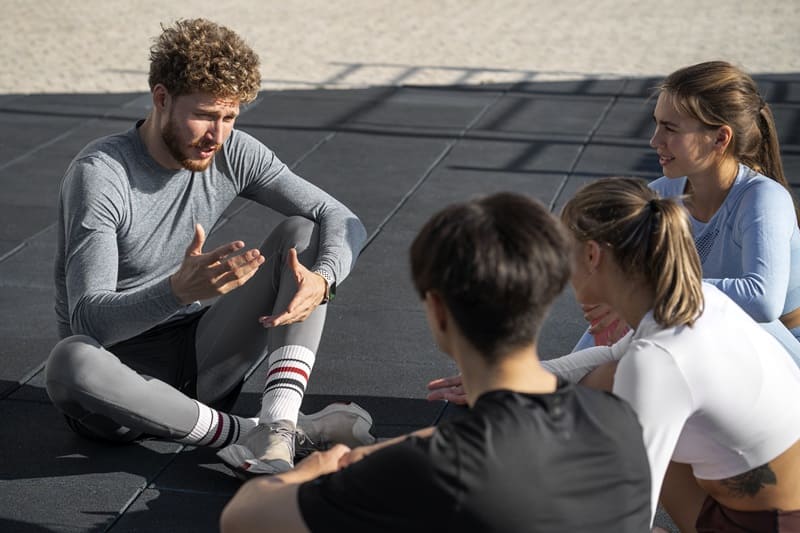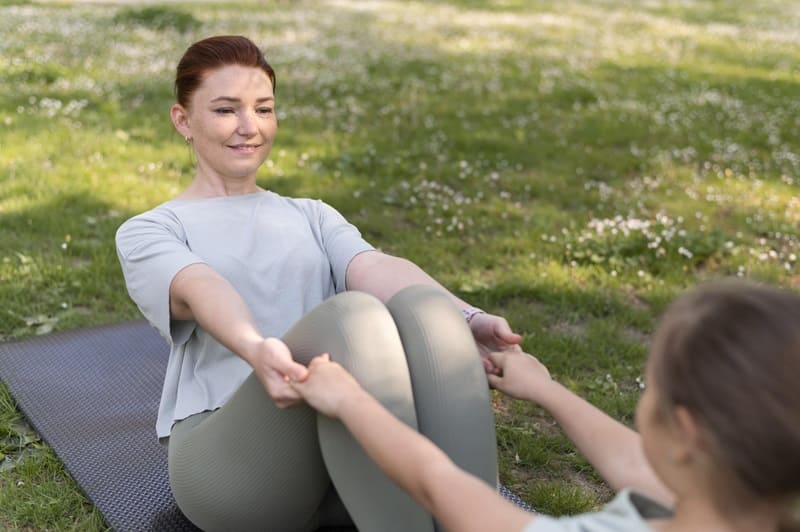
Sports activities do not only give physical advantages but play a vital part in recuperating both physical and emotional injuries as well. Regardless of whether you are working on getting better from trauma or finding ways to manage stress, sports can be a means towards recovery. Even platforms like Mel Bet acknowledge that sports aren’t just for fun but also serve as therapy for others.
Sports as a Means of Physical Therapy
Participating in sports can be used as an approach to physical therapy. Taking part in planned exercise helps to rebuild muscle and improve flexibility, which is crucial for recovering from injuries. Swimming and cycling are some of the best sports to engage in since they allow one to exercise without putting much pressure on injured parts while at the same time promoting muscle growth as well as cardiovascular fitness.
ADVERTISEMENT
Secondly, the social side of sports can also speed up rehabilitation. Joining a team or community creates an environment that encourages regularity and determination, hence making it easier to follow through with workouts needed during the recovery period. Working together towards common goals often facilitates a faster healing process, which leads to regaining lost physical abilities within shorter time periods while also boosting confidence levels among affected individuals.

Psychological Advantages of Games
Sports offer an array of psychological advantages that are deep and varied. The range of benefits one can gain from participating in games is tremendous when it comes to mental stability as well as emotional well-being. Amongst them include but are not limited to:
- Boosts mood: Normal physical activities help to release endorphins, which are natural mood elevators.
- Reduces anxiety: Exercise brings about a decrease in levels of hormones responsible for stress, thus reducing worry.
- Eases signs of depression: These structured activities let people interact with others while keeping fit physically, thereby fighting against depressive states.
- Relieves stress: Physical exhaustion brought about by sporting activities helps to relieve pent-up tensions and worries.
Providing healthy ways of emotional expression, sports act as powerful instruments for maintaining sanity.
Sports as a Means of Emotional Healing
The healing process for emotional distress and trauma can be greatly accelerated by engaging in sports. They allow for the constructive release of feelings, decrease stress, and promote mental toughness. The reason why this strategy works is that it helps people concentrate on their bodies through physical activities, thus leading to emotional stability and general wellness.
ADVERTISEMENT
Cultivating Resilience and a Healthy Self-Image
Sports participation increases resilience and self-esteem significantly. With regular exercise comes discipline and the feeling of achievement – these two factors build resilience within an individual. Also, confronting physical challenges while playing sports teaches us how to deal with emotional obstacles, thereby showing that perseverance pays off through hard work.
Moreover, setting targets such as running faster or mastering new skills can boost self-confidence. The belief in oneself that comes from succeeding in sports often spills over into other aspects of life, where individuals become more equipped to face problems positively, knowing they have what it takes. This also enhances their sense of worth.
Community and Help
The emotional recovery of an individual is considered to be dependent on community involvement. Joining a sports team or club helps one to feel like they belong somewhere and that their presence matters, hence providing the social support necessary for healing after a traumatic event. Working together to achieve common objectives with other players creates an environment where people can freely express themselves, thus realising self-understanding.
Additionally, it is true that through gamesmanship, relationships are nurtured, and they can offer more than just playing grounds assistance. Such friendships act as safety nets by giving psychological backing when things become tough. Not only does this spirit foster emotional well-being but also increases general life fulfilment and joy.
ADVERTISEMENT
The Impact of Sports on Recovery
The ability of sports to help people overcome physical and mental obstacles can be seen in case studies from around the world. Some notable case studies include:
- Terry Fox: After losing his leg to cancer, Terry set out on a run across Canada called the Marathon of Hope that raised millions of dollars for cancer research and inspired people everywhere.
- Patricia Breen: Swimming was key in her recuperation from a car crash, which left her immobile and dependent on others.
- Steve Redgrave: Rowing to Olympic gold while living with diabetes showed resilience in the face of adversity.
- Jonny Wilkinson: Rugby helped him bounce back from severe injuries sustained playing rugby, showing immense mental strength as well as commitment both towards his recovery and the sport itself.
These tales serve as reminders that there is always hope even when things seem bleak. They can also act as motivation for those who find themselves in similar situations.

Bringing Sports Into Therapy Programmes
Mixing sports with therapy programmes is a great way to improve recovery results. What sports therapy does is combine physical activities with traditional methods of healing to create a complete cure system. Therapists usually use sports as a means of achieving different therapeutic goals. These include the following:
- Improving Physical Rehabilitation: Swimming and cycling, among other activities, help build strong muscles and enhance flexibility.
- Boosting Mental Health: Participating in team games helps reduce anxiety and depression through socialisation.
- Building Life Skills: Discipline, teamwork, and perseverance, which are taught through sports, are important for personal growth.
- Promoting Regularity: Structured sporting events ensure that people keep participating frequently, thereby facilitating long-term recovery.
When you bring sports into therapy, you provide an all-round strategy that deals with both the mind and body, leading to better and sustainable recovery.
Final Word
Sports are essential for physical recovery and emotional well-being. They heal the whole person, pairing exercise with mental health benefits. When rehabilitating a physical injury or recovering from emotional distress, sports can be a potent means of getting better and bouncing back.
ADVERTISEMENT
ADVERTISEMENT











